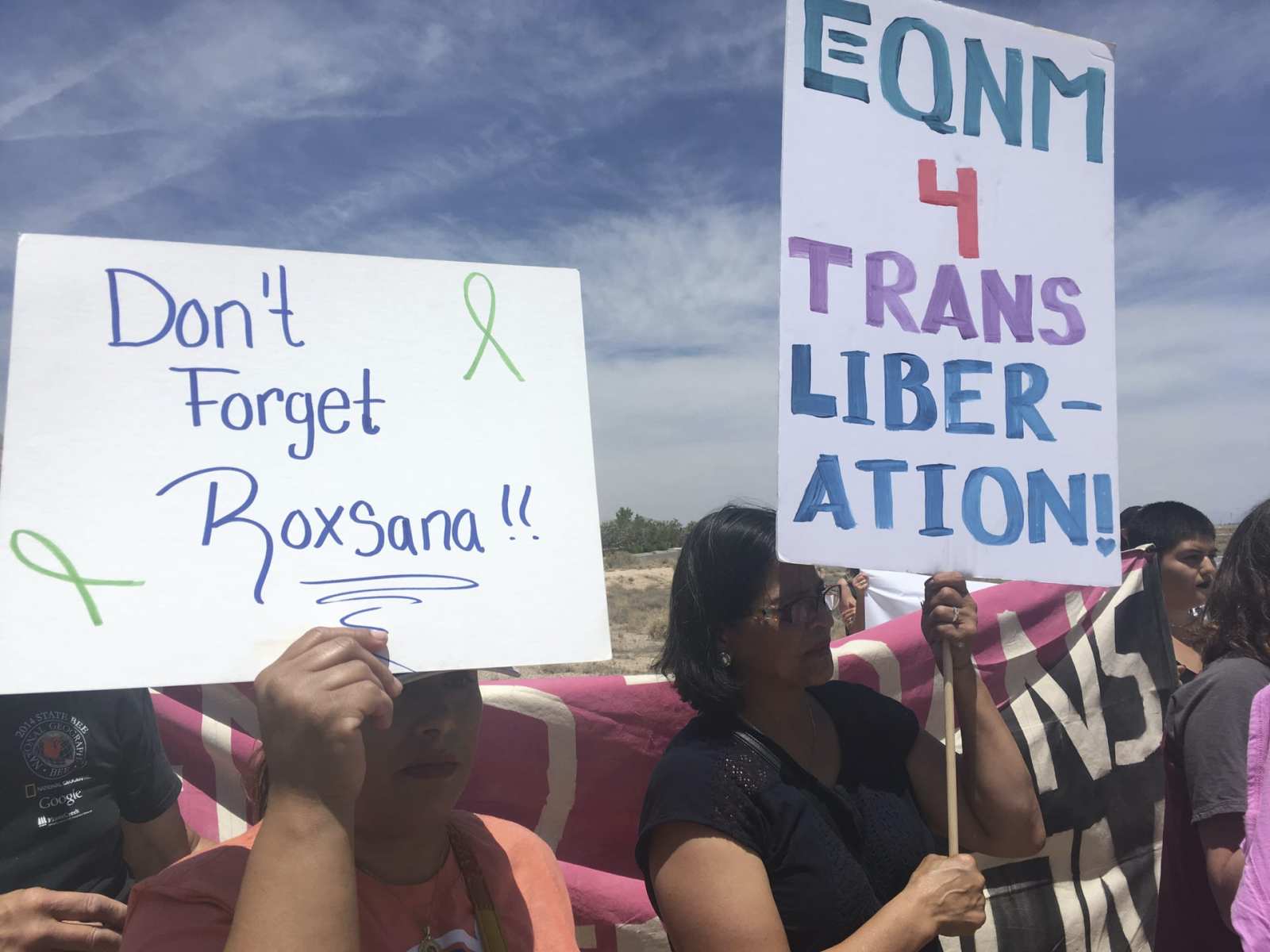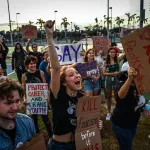After the 2016 election, queer Latinx organizers took a hard look at Arizona, Florida and North Carolina. It wasn’t that Trump had won the swing states, though he did. Another thing caught their attention: Anti-immigrant sentiment seemed to be taking hold.
Senate Bill 1070, Arizona’s notorious 2010 anti-immigration law, had begun to feel less like a blip and more like a trend given the increasingly hostile rhetoric from candidates.
“Things could have gone differently had Latino voters been engaged and mobilized to turn out to vote,” said Úmi Vera, campaign and organizing director of Familia: Trans Queer Liberation Movement. “In previous elections, anti-immigrant sentiment won, and the difference of the votes was far less than the number of eligible Latino voters in certain districts.”
Latinx LGBTQ+ people, specifically, might have tipped the scales, Vera says. Since 2016, identity-based organizations have poured millions of dollars and hours into get-out-the-vote efforts. Latinx organization Voto Latino has been on a voter outreach blitz, registering more than 250,000 new voters this year. The National Center for Transgender Equality Action Fund launched a campaign in 2018 to combat trans voter disenfranchisement. The Human Rights Campaign recently dispatched 160 field organizers across the country to activate voters who support LGBTQ+ rights.
But transgender advocates say those good faith efforts may not reach transgender Latinx voters. Many aren’t seeking out historically White-majority LGBTQ+ organizations or frequenting the same spaces as cisgender Latinx Americans.
That’s where #VotaJota comes in. Queer Latinx people are reclaiming slurs historically used against them, Vera says.
“Jota is one of them, and we use it a lot,” she said. “The word jota means faggot … so we oftentimes reclaim our faggotry as a political act.”
Familia has teamed up with Latinx political advocacy organization Mijente to push trans and queer Latinx voters to the polls this November in Arizona, Florida and North Carolina. At least 21 national and local organizations have signed onto the campaign.
We definitely are a political bloc to be taken into account and to be reckoned with in this moment.
If trans queer voters sound like a small voting bloc, consider this: NBC News found that LGBTQ+ people made up 10 percent of super Tuesday voters, despite being only 4.5 percent of the population. Nearly a quarter of all registered LGBTQ+ voters (22 percent) are Latinx, but 21 percent of LGBTQ+ Americans still aren’t registered to vote according to the Williams Institute at the UCLA School of Law.
“Don’t sell us short,” said Isa Noyola, deputy director of Mijente. “We definitely are a political bloc to be taken into account and to be reckoned with in this moment.”
The Trump presidency has been particularly trying for transgender Latinx people. Apart from a string of anti-trans policy moves by the administration, efforts to end asylum from Central and South American countries have been deadly for transgender migrants fleeing persecution, advocates say.
In May 2018, trans Honduran asylum seeker Roxsana Hernandez died in ICE custody after suffering complications of pneumonia, dehydration and untreated HIV. An independent autopsy stated Hernandez was beaten in custody, while an official autopsy said she died of AIDS complications.
Just over a year later, trans El Salvadoran migrant Johana Medina Leon died upon her release from ICE custody after officials allegedly denied her medical care. In January, members of Congress demanded that ICE stop holding transgender people at detention centers because the agency was failing to keep them safe, allegations ICE denies.
Noyola says those failures have profoundly impacted trans Latinx people who feel that the federal government has abdicated responsibility for the deaths.
“It lives in the psyche of our community,” Noyola said. “And I think it takes a toll. It doesn’t go away. We may have a vigil, we may have direct actions, we may do all this, but it’s still a profound loss.”
Noyola and other organizers want to turn that loss into “possibility,” she said.
That means meeting queer Latinx people where they are: #VotaJota plans to buy up ads on popular queer dating sites like Grindr and Scruff. The ads feature artwork from queer artist Julio Salgado, and the logo is a solidarity fist with long pointed nails. The groups will also host a drag show (virtual due to the pandemic). Perhaps most significantly, organizers are aiming to offer alternatives to the message that voting while trans is a harrowing experience during which poll workers will scrutinize your ID before turning you away.
“We’re also identifying trans individuals who have had positive stories in registering to vote and in turning out to vote,” Vera said. “The reason is because we’ve been seeing a lot of trans people on social media express concern out of unanswered questions of safety.”
The goal of all of this is not necessarily to change the tide of any race or ballot initiative, Vera says. If more trans and queer Latinx people are registered to vote and are civically engaged come November 3, organizers will consider #VotaJota a success.
“I think if we have a few hundred people in our base that are trans and queer immigrant folks, people that don’t have formal education, whose first language many times is not even Spanish, but they’re learning that so they can navigate their migration … the win will be everybody that’s prepared for the next election,” she said.






